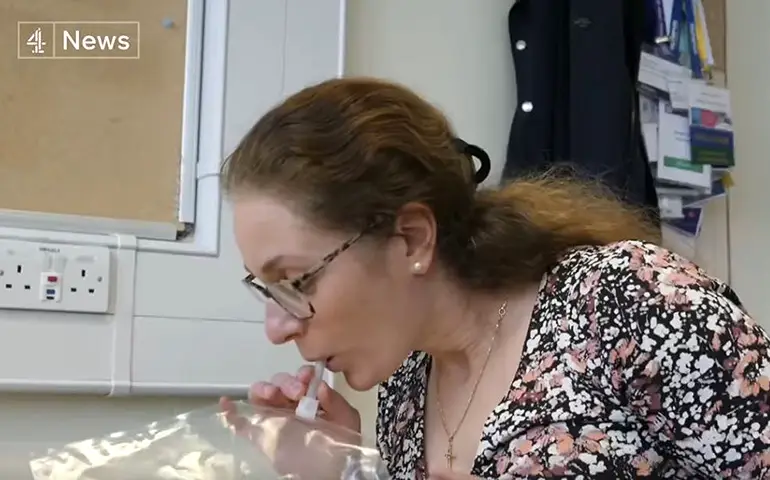

Breath test to discover oesophageal cancer using TD–GC×GC–TOF MS could be a breakthrough for testing other cancers
There are 9,300 cases of oesophageal cancer in the UK every year and sadly, because it’s so hard to detect, it has a 16% survival rate. Now, however, a new system comprising Markes’ thermal desorption instruments and 2D gas chromatography and time-of-flight mass spectrometry instruments from its sister company, SepSolve Analytical, could revolutionise that screening and detection process – not just for oesophageal, but also for other hard to detect cancers like pancreatic, gastric, colorectal and liver.
Researchers at Imperial College London (ICL), UK, are trialling a method that analyses patients’ breath – a sample-collection process which is far quicker and less invasive than the standard endoscopy, allowing the disease to be discovered and treated at an earlier stage.
The ICL research team is headed by Prof. George Hannah, who was interviewed about his team’s discovery on British TV’s Channel 4 news programme. The news programme showed how patients’ breath is sampled and then analysed for indicative cancer biomarkers (volatile organic compounds), by Markes’ TD100-xr™ (automated multi-tube thermal desorber) and 2D gas chromatography and BenchTOF2™ time-of-flight mass spectrometer from SepSolve Analytical.
Prof. Hannah said: “This system will address the balance of testing people with non-specific symptoms. If [the test] is positive, we refer for camera and endoscopy examination, and if it’s negative, the patient is referred for [appropriate] treatment and we test again if the symptoms persist.”
